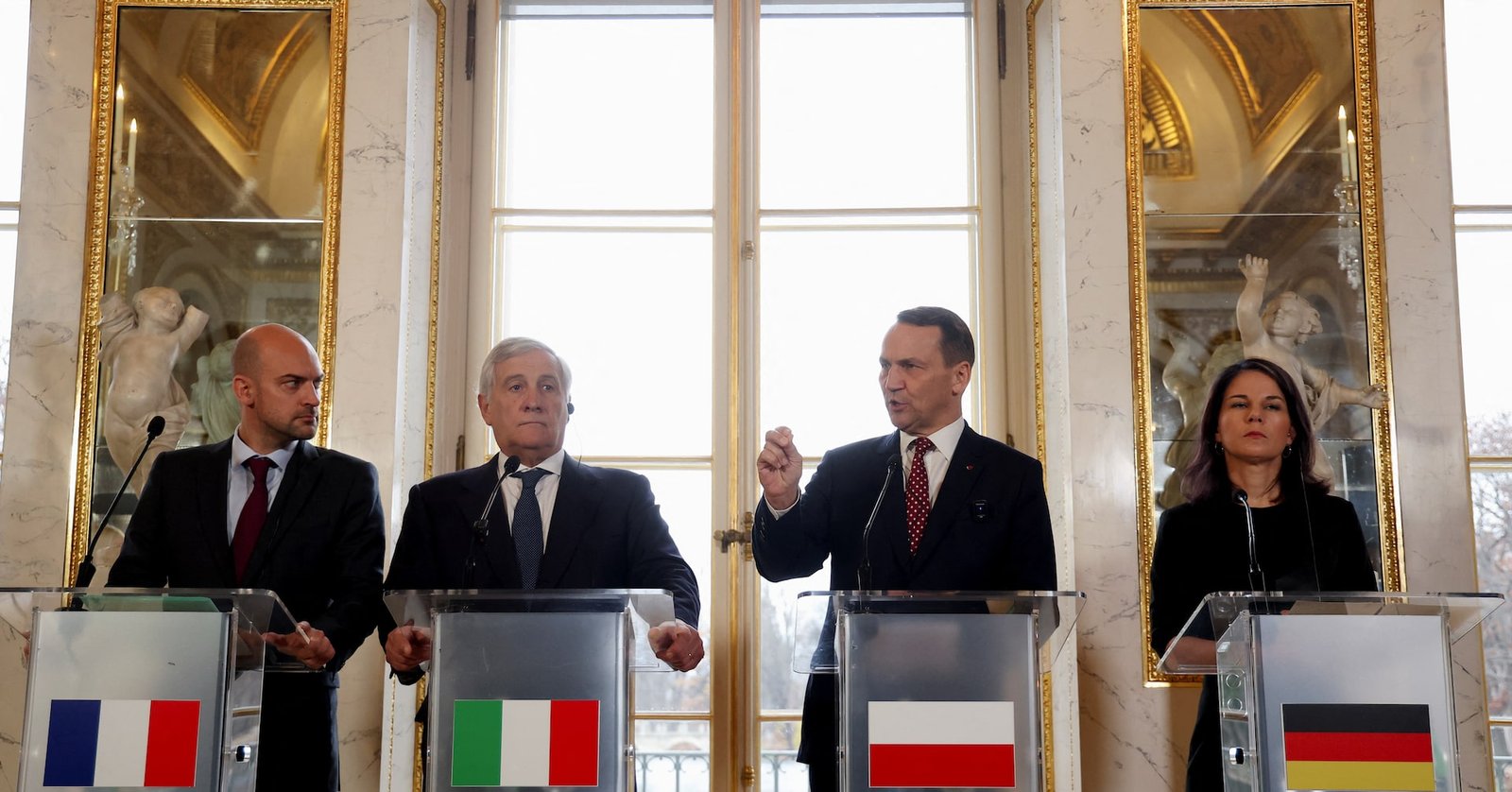
French Minister for Europe and Foreign Affairs Jean-Noel Barrot, Italian Foreign Minister Antonio Tajani, Polish Foreign Minister Radoslaw Sikorski and German Foreign Minister Annalena Baerbock attend a press conference as European foreign ministers meet at Palace on Water in Lazienki Royal Park, Warsaw, Poland November 19, 2024…. Purchase Licensing Rights, opens new tab Read more
BERLIN, Nov 20 (Reuters) – Berlin declined to say on Wednesday if it supports a proposal for the European Union to issue defence bonds, after Poland’s foreign minister said that countries including Germany present at a meeting in Warsaw on Tuesday backed the idea.
Germany has in the past been among European Union members that have opposed the idea of joint EU borrowing to fund key investments in areas such as defence, a position that has frustrated policymakers in other capitals, including Warsaw.
On Tuesday the Polish, German, French, Spanish, Italian and British foreign ministers issued a joint declaration pledging, among other things, to “strengthen Europe’s security and defence, using all levers available to us, including the economic and financing power of the European Union”.
Polish Foreign Minister Radoslaw Sikorski hailed the text as a breakthrough in which the five largest EU states expressed support for defence bonds, but a German foreign ministry spokesperson appeared to play down the prospect of a policy shift.
The spokesperson said the joint declaration “expresses a very clear position that there is a united will to continue to provide Ukraine with intensive support, including in the area of security and defence, and with at least 2% of GDP”.
Asked about the possibility of Eurobonds being issued the spokesperson said they “did not find any other aspects that you had in your question in the declaration”.
Germany’s coalition government collapsed earlier this month, paving the way for a snap election and leaving the current administration unable to undertake major policy initiatives.
Spurred by Russia’s war in Ukraine and fears that the United States may reduce its commitments to European security, many European leaders have declared the continent needs to spend more on defending itself.
But the question of how to fund big defence spending increases remains unresolved.
Sign up here.
Reporting by Alexander Ratz, Barbara Erling and Andrew Gray; Writing by Miranda Murray and Alan Charlish, Editing by Madeline Chambers and Ros Russell
Our Standards: The Thomson Reuters Trust Principles., opens new tab
